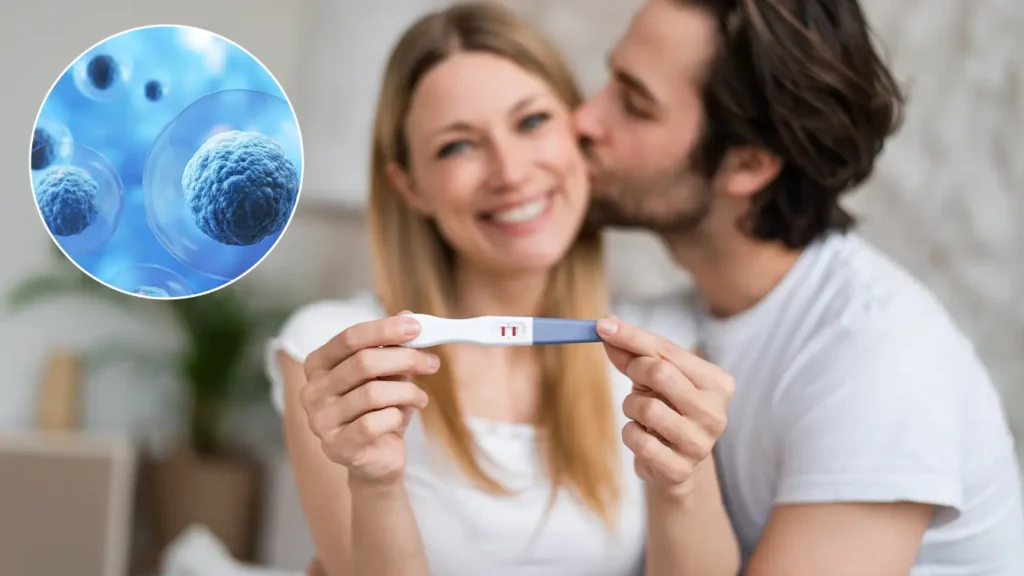Infertility is a problem that affects about 15% of couples worldwide. Infertility is defined as the inability to conceive after at least one year of regular unprotected sexual intercourse.
The causes are similarly distributed among male, female, and idiopathic infertility (without obvious causes), each accounting for about 30% of cases. Among the contributing factors:
- pollution and modern lifestyles;
- chronic diseases and hormonal disorders;
- oncological treatments such as chemotherapy;
- anatomical or scarring changes affecting the endometrium.
Despite advances in medically assisted reproduction, many couples seek innovative, more natural, and lasting solutions.
Stem Cells and Fertility: What Studies Tell Us
Scientists have observed that some animal species, such as mice, remain fertile throughout their lives thanks to stem cells present in the ovaries, capable of generating new oocytes.
Recent research has demonstrated the presence of similar cells in human female ovaries as well. This has paved the way for experimental therapies that stimulate the production of new fertilizable eggs through the use of stem cells.
A promising example is the study by gynecologist Jaroslaw Kaczynski, who injected umbilical cord stem cells into the ovaries of four infertile women: two of them became pregnant after a single administration.
At the same time, research is also underway on male infertility, aimed at transforming stem cells into male germ cells, with encouraging results.
iPS and New Frontier: Eternacell’s Research
In addition to umbilical cord stem cells, today’s evolution also involves induced pluripotent stem cells (iPSCs). These are cells obtained by reprogramming adult patient cells (such as PBMC from peripheral blood) and returning them to an embryonic state, with the ability to differentiate into oocytes, sperm, and reproductive tissues.
Eternacell SA, an offshoot of Swiss Stem Cells Biotech (SSCB), represents a benchmark in this field. Thanks to over 20 years of research and laboratories certified according to GMP standards, Eternacell now allows for cryopreservation of adult cells that can be reprogrammed into iPSCs, a true biological insurance for the future.
📌 This is particularly important for daughters who did not have the opportunity to preserve their cells at birth. Through Eternacell, it is now possible to cryopreserve adult cells (from peripheral blood) for future applications, including those related to fertility.
👉 International clinical trials are already underway studying the use of iPSCs for the treatment of female and male infertility. This new frontier could offer concrete solutions to women who have lost ovarian function or to men with azoospermia.
Note: The contents of this page are for informational purposes and do not replace professional advice. In case of symptoms, doubts, or medical needs, always consult a qualified physician.
FAQ – Stem Cells and Infertility
- Can stem cells help in cases of infertility?
Yes, clinical studies show that stem cells from cord blood and iPSCs can regenerate oocytes or reproductive tissues, opening new treatment prospects.
- What is the difference between cord blood stem cells and iPSCs?
The former are collected at birth and are already used in various therapies. iPSCs, on the other hand, are obtained by reprogramming adult cells (e.g., peripheral blood) and represent the new frontier of regenerative medicine.
- Can stem cells treat male infertility?
Yes. Research has shown that stem cells can differentiate into male germ cells, opening treatment possibilities in cases of severe male infertility.
- Is it possible to cryopreserve cells today for future infertility treatments?
Yes. Eternacell SA allows for the cryopreservation of adult cells processed under GMP for possible future applications, including reproductive ones.
- Are there clinical trials on the use of iPSCs for infertility?
Yes, several international centers are studying protocols for using iPSCs to regenerate oocytes and sperm, with very promising initial results.
Conclusions
The treatment of infertility with stem cells represents one of the most innovative frontiers of modern medicine. From cord blood cells already used in clinics to iPSCs on which the most advanced trials are based, science is opening new concrete possibilities for couples wishing to have children.


